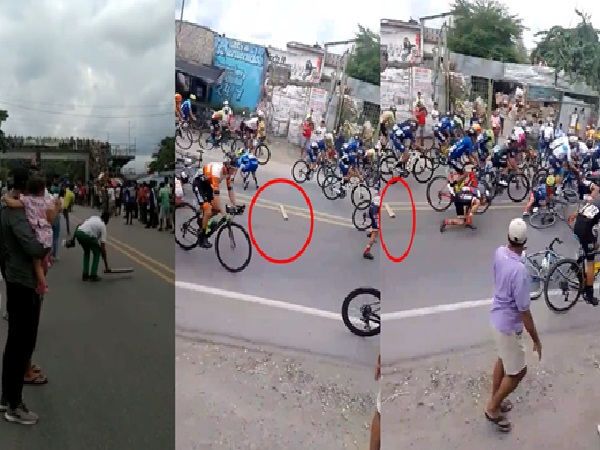Vicente Revuelta Planas (June 5, 1929-January 10, 2012), Cuban —and from Havana, to be exact—, is included in his own right among the great figures of contemporary theater in the region of the Americas, and is the innovator par excellence of the Cuban theater of the second half of the 20th century.
Very young he had professional experiences in the cinema, radio, television; however, he decided for the Theater. The keys seem to be in his shy childhood, affected by the needs of a humble family, in contradiction to his curiosity and enormous need for communication; in the grayness of a life —that of that time— that he only found nuances of color and interest on the cinematographic screens.
All this, plus his parents’ taste for art, led him, after his sister —the great Raquel Revuelta—, towards the world of theater: a place where he had companions while having the opportunity to examine and question the human behavior, one of his great obsessions.
He had the opportunity to act in several of the institutions of the time, both in the stage that Cuban theatrical history calls “the theater of art”, and in “the period of the little rooms or pocket theater”, and to meet its main figures. Thus, he joined casts in the Free Scenic Group (GEL), in ADAD, University Theater, Las Mascaras, Theater Board, Prometeo and was related to Paco Alfonso, Andrés Castro, Julio Martínez Aparicio, Modesto Centeno, Francisco Morín, among the directors, and with actresses and actors of the stature of Marisabel Sáenz, Adela Escartín, Violeta Casal, Minín Bujones, Raquel Revuelta, Lillian Llerena, Eduardo Casado, Eduardo Egea, Helmo Hernández, Roberto Blanco, among others.
Very early and as if it were a natural process in his professional life, he began in theater directing, where throughout his life he reaped triumphs similar to those he obtained in his performance as a performer. An interesting area of the repertoire that he selected, as a director, came from North American and European dramaturgy. In the case of the first, there are the examples of Tennessee Williams (Bertha’s Memories1950; glass world, 1956 and 1961); Eugene O’Neill (A long day’s journey into the night1958, and Before breakfast1984), Edward Albee ( The story of the zoo1964 and 1984; The death of Bessie Smith1964) and Arthur Miller (The price, 1979); while the second has Bertolt Brecht as its center (The good soul of Se Chuán1959; The rifles of Mother Carrar1960; Mother Courage and her children1961 and 1973; Galileo Galileo,1974 and 1985) along with the classics of the Spanish golden age: Lope de Vega (ovejuna1963; The dog in the gardener1964; the silly lady, 1977) and Lope de Rueda; to the great Elizabethan bard (the twelfth night1982, and measure for measure1993) and Anton Chekhov (Wedding proposal1956 and The three sisters1972).
Through his sustained practice, in which research and experimentation constituted the essential pillars, he is considered the artist who gave recognition in Cuba to the discoveries of Konstantin Stanislavski for scenic art; to the new perspective of Bertolt Brecht and to the Western European avant-gardes of the 1960s, especially the proposals of Jerzy Grotowski.
Three great milestones in his career were A long day’s journey into the nightwith which he founded, along with his fellow adventurers, the mythical Teatro Estudio group, the most transcendent on the Cuban scene of the 20th century; the night of the assassinsby Cuban playwright José (Pepe) Triana, who placed Cuban theater in tune with the theatrical avant-garde of his time in the West and The three sistersthe Chekhovian classic read in the air of performance and inscribed in the country’s ideological-political discussion at the time, without overlooking the arduous experience of Grupo Los 12, between 1968 and 1970, one of the highest moments of theatrical and artistic inquiry on the Island.
Vicente turned out to be a permanent teacher without the need for another classroom or chair other than his own work and the generosity of sharing his passion for theater and curiosity towards human beings and their social relationships with anyone who was interested.
Self-taught, he became a highly educated man who modeled himself (a self made man), inspiring the artists of his generation, as well as those who make up subsequent generations.
In 1999 he received the National Theater Award, along with his sister Raquel, both inaugurating the delivery of the highest award on the Cuban scene.
In the year 2000, the University of the Arts awarded him the degree of Doctor Honoris Causa in Arts.
***
*The title of this article is a phrase said by Vicente Revuelta to the author collected in her book: The game of my life. Vicente Revuelta on stage. Editorial Cuban Letters, Havana, 2017, p. 134.






